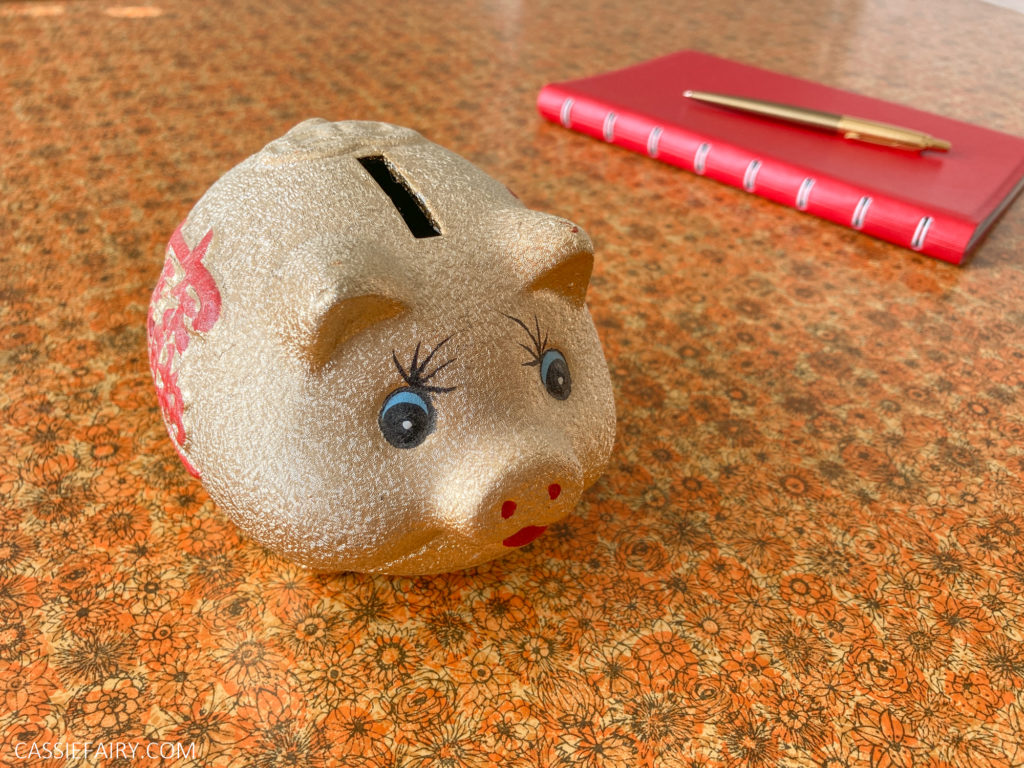
We all have goals for our careers and in our professional lives, but how many of us have money goals too? While it’s key to consider money goals in terms of future retirement, it’s also important to save for unexpected costs that may impact our lives in the meantime. I’m a big follower of #MoneyTwitter and I’ve recently been educating myself on saving and investments. Here are some ways to plan, save and achieve your future money goals…
DOES YOUR BUDGET ALLOW FOR SAVING?
While some people divide their salary between day-to-day expenditure and savings, sometimes there just isn’t enough left over to save. That’s when it’s a good idea to create a budget to keep an eye on your spending. A budget ensures your outgoings don’t exceed your income, and should allow space for saving too. This may mean cutting back on some unnecessary bills – try removing some subscriptions and social spending from your budget and see what effect it has on the end-of-the-month total.
WHAT EMERGENCY FUND DO YOU NEED?
The first savings goal to aim for is creating an emergency fund. It should be kept in an account that you can access easily when you have a problem to sort out. This fund is separate from any other savings, investments or pensions, and is only used for getting you out of sticky situations. It can be used for home maintenance problems like needing a new boiler or roof repair and it can be dipped into when you have a personal need like covering your income when you’re between jobs. Just remember to top your emergency savings back up as soon as you can.

WHAT’S YOUR RETIREMENT PLAN?
Saving for retirement is one of the most significant investments you’ll ever make. Even though I can’t even imagine retiring at the moment, I’m sure one day I’ll want to do less and relax more – so it’s important to plan for this. Many of us have workplace pensions, but this might not always be enough – or you might be self-employed and need a personal pension for freelancers, so you may want to consider saving more. Coming up with a plan to make your future better will take some time, and require research into the options but there’s no rush and it’s better to take your time than make the wrong decisions.
WHAT AGE DO YOU WANT TO RETIRE?
The first thing to do is choose the age you plan to retire and then you can set deadlines to achieve your savings goals to meet this date. Working backwards like this means you can start saving early and spread the cost of savings. A dynamic retirement calculator will allow you to work out how much you need to save if you start planning for retirement now, or what additional savings you’ll need to make if you start in ten years, or once your mortgage is paid off. If you’ve got the figures in front of you, it makes it easier to think ahead, and actually start saving!

SHARES AND INVESTMENTS
While it’s reassuring to have savings in the bank, your money will actually decrease in value by the time you reach retirement if it’s not earning interest above the rate of inflation. That’s why investments could be helpful for growing your savings into a bigger retirement pot. Imagine it like planting a seed; you put a little money into something today, like a stock or a fund, and over time, it can grow bigger than what you started with.
But investing isn’t something to jump into – you should do your research and always understand what you’re investing in. You need to monitor the stock market and see how stock prices change over time. Plus, there are different ways to invest – you might prefer a stocks and shares ISA to get the tax-free benefits that come with it, or want to choose a managed fund so that you can be hands-off, or you might enjoy making investments yourself, keeping an eye on the market, checking the WBC price and deciding when it’s the best time to buy or sell.
DO YOU HAVE A CLEAR VISION?
If you’ve created a budget, set a savings plan and are determined to achieve your future money goals, your work here is done. Or, is it? Having a clear vision means you won’t need to make too many critical decisions, such as what type of investments to make, or what ISA account to open – that’s all sorted. But you should still review the steps that you take in order to keep your finances on track and check that you haven’t forgotten anything important, like the life insurance cost to protect your family’s finances. Then, you can look forward to the time limit you set to achieve that savings goal – how excited will you feel when you’ve got together the deposit for a house or have saved up to buy a car?
WHEN TO REVIEW AND ADAPT?
As we all know, life is not a straight path and the best-laid plans can go awry. Don’t worry or beat yourself up if you can’t stick to the financial goals you set out – be flexible and adapt the plan to reflect the new situation. Regular reviews of your finances will help with this and allow you to change course and continue moving toward your goals.

How have you planned for your financial future? Do you have any money hacks to help you save more? Have you already outlined all the money goals you want to achieve and are following the plan to the letter? Let me know in the comments below, I’d love to hear your advice.
PIN IT FOR LATER

This blog post is an advertisement feature that has been written in collaboration with a sponsor. The pink links in this post indicate a sponsored link 🙂






















